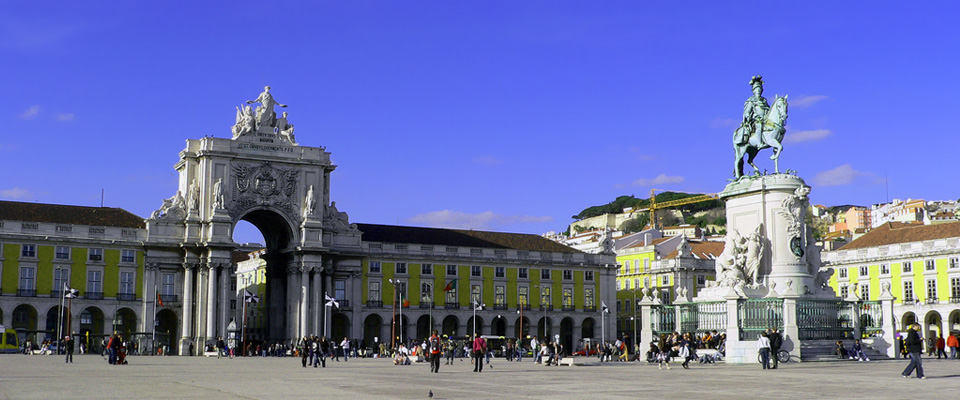| Belém Line: Another name for the Belém Line could be the “Discoveries Line”. Comprising 18 stops, this line takes you to some of the most memorable spots in a city famed for its light and exalted by writers and fado singers.The high point of the route is Belém, where the various monuments relating to the era of the Portuguese Discoveries tell tales of bygone kings and queens. Explorer Vasco da Gama’s ships set sail from the riverside beaches here on their voyage to discover the sea route to India, and the splendour of Portugal’s once great empire can be felt in the very air you breathe. The Monastery of Jerónimos, Torre de Belém (Belém Tower), Padrão dos Descobrimentos (the Monument to the Discoveries) and the National Coach Museum are absolutely not to be missed.And for those with a sweet tooth, we suggest you sample some of the famous Pastéis de Belem, a typical sweet Lisbon pastry.
Oriente Line :Complementing the Belém Line, and ideal for fun-seekers, the Oriente Line comprises 19 stops including one next to Lisbon Zoo, at Sete Rios, and another for the Oceanarium, at Parque das Naçoes. The line starts at Marquês de Pombal Square in the very heart of the city and takes you as far as Parque das Nações, or Park of Nations, where the 1998 World Fair (Expo 98) was held. The fair truly put Lisbon, and this particular part of it, in the spotlight and today the area is considered to be the newest and most modern in the city.The Expo 98 site houses the Lisbon Oceanarium. Designed by architect Peter Chermayeff, it is the second largest facility of its kind in the world and is a must-see for all visitors.
Our route takes us past the 7 hills of Lisbon, with the famous Bairro Alto and Chiado neighbourhoods, museums, fashion boutiques, art, antique shops, cafés, restaurants and viewpoints.
The architecture in this part of the city is very modern and many leisure areas can be seen next to the River Tagus.
Castle Line: Although shorter, the Castle Line packs a huge amount into just 8 stops.
The main attraction is the famous Castelo de S. Jorge (Castle of St. George), a “Lisbonite” icon that takes us on a journey back through the centuries to the time when Lisbon was ruled by the Moors. The city was recaptured from them by the first King of Portugal, D. Afonso Henriques, on the 25th of October 1147. Steeped in tradition, the typical neighbourhoods are the perfect place to truly get the feel of Lisbon: fado music, the low-rise buildings and the narrow streets.
Be sure to stop at the Portas do Sol viewpoint for a unique and breathtaking view of the city.
Join us on this tour and relive the Lisbon of bygone days. |


